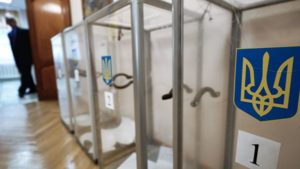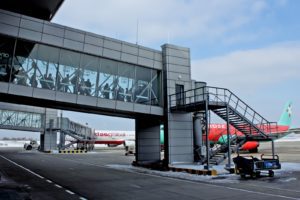National bank of ukraine’s official rates as of 22/07/19

Source: National Bank of Ukraine

According to the results of 50.01% of the protocols processed, the Servant of the People Party with 42.45% of the vote, the Opposition Platform – For Life – 12.88%, European Solidarity – 8,64%, Batkivschyna – 8.01%, and Holos – 6.38% enter the Verkhovna Rada.
According to the CEC website, the remaining parties do not yet overcome the 5% pass barrier to parliament.
Ukraine will be able to sign a new program with the International Monetary Fund (IMF) in the amount of $6-8 billion by the end of 2019 and make necessary payments on foreign debt in 2020 and 2021, Raiffeisen analysts predict. In the document, they noted a high probability of obtaining the majority by the pro-presidential party Servant of the People, which was leading in polls with an indicator of 41.5-52.30%, which will ensure the implementation of reforms promised by President of Ukraine Volodymyr Zelensky, due to which Ukraine will be able to receive IMF support.
According to the analysts, even if it fails to independently form the government, the Servant of the People party can form a coalition with Svyatoslav Vakarchuk’s Holos party, which is supported by 5-7% of the respondents.
“Given the commitment of President Zelensky to reforms, the new government will be able to sign a new three-year program with the fund in the amount of $6-8 billion by the end of 2019,” the report says.
Raiffeisen analysts point out that 40% of payments on Ukraine’s gross external debt are in 2020–2021 ($16.8 billion in 2020 and $18.5 billion in 2021), therefore the government needs a new cooperation program with the IMF as soon as possible. “Even given the full rollover of inter-company loans and the refinancing of 50% of corporate credits, Ukraine will have to pay $12.5 billion in 2020 and $15 billion in 2021,” the document says.

According to the data of 25.82% of the protocols processed, the Servant of the People Party with 42.03% of the vote, the Opposition Platform – For Life – 12.64%, European Solidarity – 8, 64%, Batkivschyna – 8.33%, Holos – 6.38% are passing to the Verkhovna Rada.
According to the CEC website, Radical Party with 4.08%, Strength and Honor, which gains 3.68% of the votes in Ukraine as a whole, Opposition Bloc – 3, 28%, and Svoboda – 2.35% don’t overcome the 5% barrier to parliament.

The transport companies of Ukraine in January-June 2019 carried 2.137 billion people, which is 6.3% less than in the same period of 2018, the State Statistics Service has reported. According to its data, the passenger traffic of transport companies for the reporting period amounted to 52.2 billion passenger-kilometers, which is 3.8% more than in January-June last year. According to the State Statistics Service, in the first six months, 78.3 million passengers were transported by rail (taking into account the city electric train), which is 0.3% more than in January-June 2018, and 907 million passengers were carried by road (5.6% less).
Air transport increased passenger traffic by 8.3%, to 5.9 million people.
In addition, according to the State Statistics Service, in January-June 2019 some 313 million passengers used the services of trams (a decrease of 10% compared to the same period in 2018), 355 million travelled by subway (a decrease of 1.9%), and 477.6 million people used trolleybuses (a drop of 9.1%).
Passenger transportation by water increased by 4.5% compared with January-June 2018, to 200,000 people.
The service said the figures are given excluding the temporarily occupied territory of Crimea, Sevastopol and part of the temporarily occupied territories of Donetsk and Luhansk regions.

Voter turnout at snap parliamentary election in Ukraine as of noon on Sunday was 19.24% according to data from 195 constituencies out of 199 constituencies all over the country, according to a posting on the website of the Central Election Commission (CEC) of Ukraine.
Turnout in Vinnytsia region was 18.68%, in Volyn region – 15.77%, Dnipropetrovsk region – 22.53%, Donetsk region – 21.62%, Zhytomyr region – 19.25%, Zakarpattia region – 12.32%, Zaporizhia region – 22, 96%, Ivano-Frankivsk region – 13.07%, Kyiv region – 19.46%, Kirovohrad region – 23.61%, Luhansk region – 25.37%, Lviv region – 13.86%, and Mykolaiv region – 20.72%.
Odesa region showed a turnout of 18.43%, Poltava region – 23.25%, Rivne region – 16.19%, Sumy region – 20.46%, Ternopil region – 15.19%, Kharkiv region – 21.53%, Khmelnytsky region – 20.48%, Cherkasy region – 22.67%, Chernivtsi region – 12.21%, Chernihiv region – 22.84%, Kherson region – 21.72%, and Kyiv City – 16.63%.